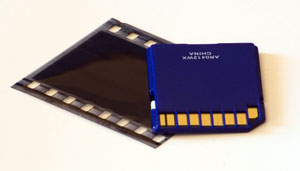“No amount of technology will turn a mediocre photographer into a great one. Nor, in conceptual terms, will it transform a bad idea into a good one. For that you would still need to possess a rare set of creative gifts that are still to do with seeing, with deep looking.”
Words by Shean O’Hagan in The Guardian. His article Photography: An Ever Evolving Art-Form examines the changing landscape of the thriving medium called photography. Quote:
Facebook was launched in February 2004. By November 2011, an estimated 100 billion photographs had been shared via the social network. By April 2012, Facebook users were posting photographs at the rate of 300 million per day.
Leaving aside the estimated 11 billion photographs uploaded to image-based sites such as Flickr and Instagram, we have already entered a realm where the numbers are so vast they begin to lose their meaning.

Ironically, the moment of greatest photographic plenitude has pushed photography to the point of exhaustion. as technical boundaries fall, the rise of artistry is even more crucial for success.
Maybe some of the grand old photographers might have utterly failed in today’s environment with such a vast amount of stellar photographs produced each and every day.
Furthermore, this tsunami of digital technology sweeps away so much that was not that long ago taken for granted: rolls of film, the film camera, darkrooms, processing labs, contact sheets, Polaroids and Kodachrome. As with recorded music and, imminently, printed matter, photography is a world in which all that once was solid is becoming immaterial.
And yet, for all that upheaval, photography, in all of its forms, continues to prosper, thanks to the age of the “techno amateur” born by the cheap, relatively complex digital camera and smartphone. With a little help from technology even a drunk monkey can take decent photos.
Once well paid photographers are losing jobs to girlfriends, neighbors and the inexperienced first-time user who has a new camera that makes people look so much nicer!!
Down with mediocrity? It’s not the camera. A good photographer will always prevail. But he or she has to be even better and work even harder to prevail.
I don’t think today a photo is accepted more quickly as a nice photo than it was accepted as a nice photo in the past. On the contrary.
No, the bar hasn’t been lowered so much that we all have to be careful not to trip over it.
It’s just that the competition is much tougher.
Just check out, for instance, Getty Images’ 2012 — Year in Focus. Some incredibly strong work. Digital, first and foremost.
Good photography is not about old vs. new. Good photography is about the photographer.
Maybe it’s time, for some photographers, to start questioning one’s own skills and technique instead of wallowing in self-pity and trying to shoot the messenger.
Why blame the demise of the good old days on digital photography. It’s just another way of photography — and photography is still all about the… yes, the interpretation of the instant.
For all that, no amount of technology will turn a mediocre photographer into a great one. For that you would still need to possess a rare set of creative gifts that are still to do with seeing, with deep looking.
Technology can’t lessen the time it takes one to become a good photographer. Technology might well give the impression that one’s vision develops faster because a digital photographer has to invest less time to secure a certain shot.
But that has nothing to do with seeing, deep looking and vision.
O’Hagan’s closing words:
Whatever upheavals it has witnessed, photography has endured. It continues to do so, even as we drown in a sea of uploaded images whose sheer quantity mediates against their meaning. Photography, in more ways than one, thrives on a crisis. The instant endures.


